#slavic folk
Explore tagged Tumblr posts
Text
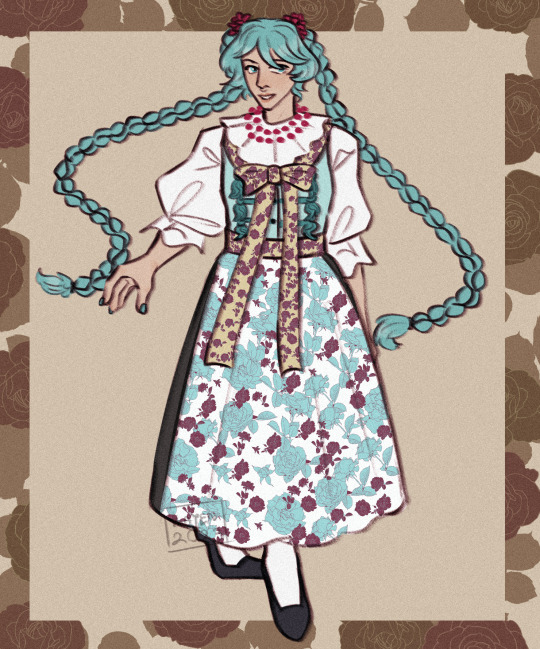
Happy Miku Monday! I drew her in the Rozbark folk costume : -)
#hatsune miku#miku hatsune#miku#vocaloid#vocaloid miku#miku monday#silesia#śląsk#upper silesia#górny śląsk#rozbark#folk costume#traditional clothing#slavic#slavic folk#art#digital#drawing#digital art#digital drawing#digital artwork#artwork#own art#mine#my art#art tag#artist on tumblr
918 notes
·
View notes
Text
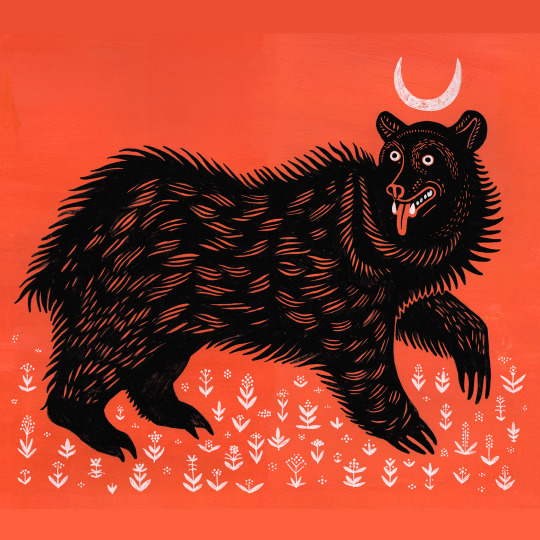
NIEDŹWIEDŹ ✷ THE BEAR ✷ (Ursus arctos) ✷ "Jak mawiano niedźwiedzie mają duszę, a duch drapieżnika mści się na swoim zabójcy, np. prowadzi go na bezdroża lub w przepaście." "Niedźwiedź był również zwierzęciem demonicznym, symbolem płodności, urodzaju, sił wegetacyjnych, a z racji swojego trybu życia (sen zimowy) - odwiecznego zmagania się zimy-śmierci z życiodajną wiosną." ✷ "As they say, bears have souls, and their spirit takes a revenge on it's killer, for example, leading it astray or into the precipice." "The bear was also a demonic animal, a symbol of fertility, harvest, vegetative forces, and due to its lifestyle (hibernation) - the eternal struggle of winter-death with life-giving spring." - From "Góralskie czary. Leksykon Magii Podtatrza i Beskidów Zachodnich" by Katarzyna Ceklarz i Urszula Janicka-Krzywda. published by Tatrzański Park Narodowy -
#magic#slavic#folk#folklore#tpn#illustration#folkart#niedźwiedź#bear#folk magic#slavic magic#polish folk#slavic folk#spell#witchcraft#tatry#tatra mountains#tatra national park#polska ilustracja#animal#wild animal#magic folk#folk art#slavic mythology
485 notes
·
View notes
Text
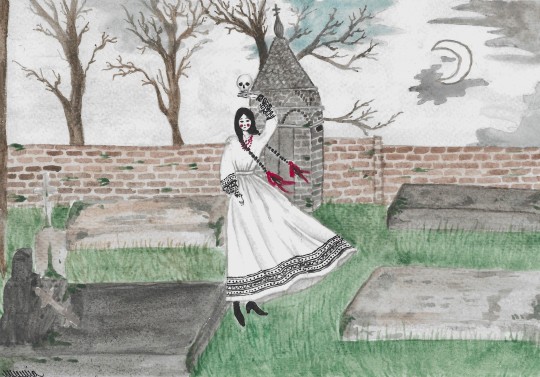
Graveyard spirit in Biłgoraj folk costume
#my art#dress history#fashion history#vintage#historical fashion#folk#folk costume#folk dress#polish folk#polish folklore#polish culture#polska#poland#slavic folk#slavic art#slavic culture#slavic#eastern europe#folklore#traditional dress#biłgoraj#strójbiłgorajski#spooky art#spooky aesthetic#spooky vibes#ghost
204 notes
·
View notes
Text








Slavic Darkness
Self-Portrait.
Dress by Anya Letimdoleta.
Natalie Ina Photography
Lindulovskaya grove, August 2022.
Instagram
Facebook
Boosty
Behance
VK
#natalie ina photography#darkness#sorrow#photographers on tumblr#dark photography#dark woods#dark fantasy#dark aesthetic#dark forest atmospheric#dark forest#dark fairytale#dark folk#dark#slavic witch#slavic mythology#slavic folklore#Slavic folk#slavic fantasy#Slavic darkness#Slavic#witches#witchcraft#witchcore#witch#witchblr#dark atmospheric#dark atmosphere#dark Slavic#art photography#pine forest
106 notes
·
View notes
Text

Sirin and Alkonost – Birds of Joy and Sorrow, 1896 - oil on canvas.
— Viktor Vasnetsov (Russia, 1848–1926)
Sirin and Alkonost are paradise birds-maidens from bookish Byzantine and Slavic legends. In Western European legends, Sirin is the embodiment of the unhappy soul. In Russian spiritual poems, Sirin, descending from paradise to earth, mesmerizes people with her singing. Alkonost is a sea bird symbolizing God's Providence and God's mercy. The singing of this bird is so beautiful that those who hear it forget everything in the world.
#slavic culture#slavic#slavic folklore#slavic mythology#folk#folklore#slavs#art#slavic folk#artwork#sirin#alkonost#sirin and alkonost#ancient history#art tag#folk art#oil painting#painting#artists on tumblr#viktor vasnetsov#mythology#history#byzantine#byzantine mythology#drawing#oil on canvas
136 notes
·
View notes
Text
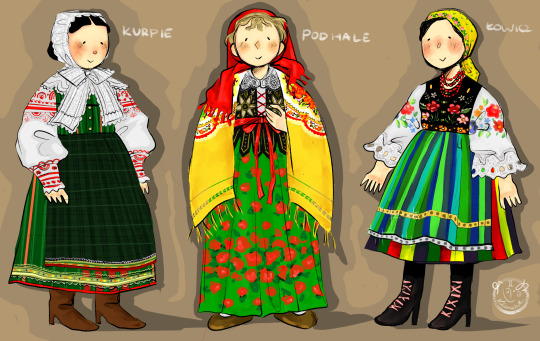
My country's traditional clothes doodled. Chose the regions that I draw the least often hah.
#Poland#traditional clothes#folk costume#folk#stroje ludowe#polski tumblr#polska#kurpie#łowicz#podhale#górale#polski folk#slavic folk#my art
445 notes
·
View notes
Text
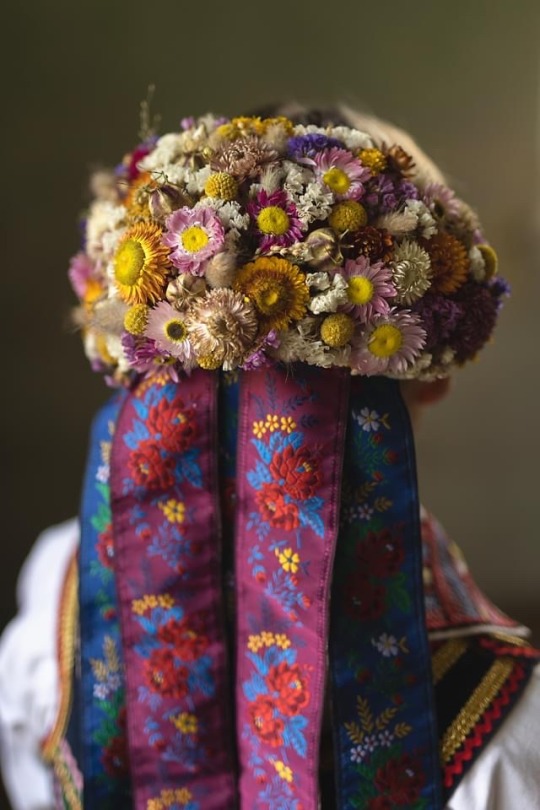
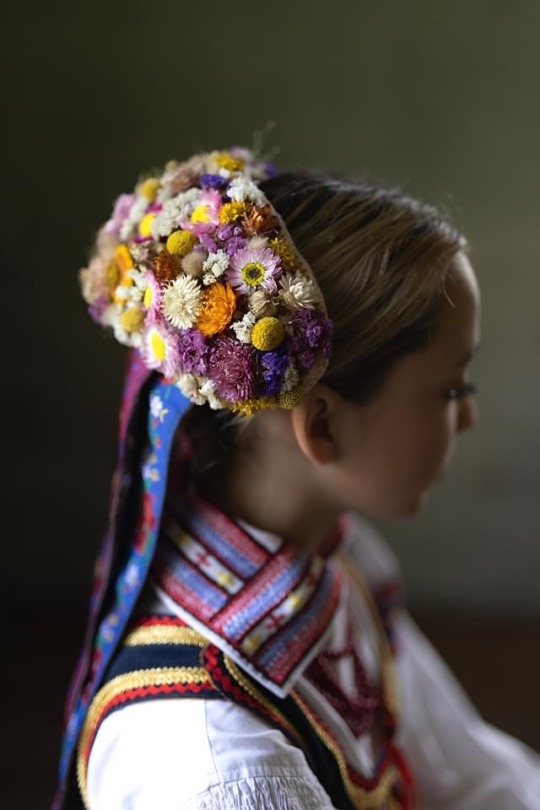
Krzczonów, Lublin area.
source: Koło Gospodyń i Gospodarzy Krzczonów Sołtysy
photo by: Martyna Jarosz
342 notes
·
View notes
Text

Redraw of an old idea I had, the gaang if they were Bulgarian/South Slavic.
Aang is inspired by shepherd's clothing mostly as well as some North- and Central- West Bulgarian clothing. Same for Sokka, but mostly CW (from the Shop region). Katara is a mix of Rhodope mountain and again CW styles. The butterflies are just so they don't stare in empty space lol
#avatar the last airbender#atla#fanart#avatar: the last airbender#a:tla#aang#katara#sokka#bulgarian folk#folk clothing#folk costume#traditional dress#balkan folk#slavic folk#avatar
194 notes
·
View notes
Text

240 notes
·
View notes
Text

― Slavic Gods, Sprits and Creatures Aesthetics, Part II. Part I.
'' Poludnitsa is a noon demon in Slavic mythology. She can be referred to in English as "Lady Midday", "Noonwraith" or "Noon Witch". She was usually pictured as a young woman dressed in white that roamed field bounds. She assailed folk working at noon, causing heatstrokes and aches in the neck; sometimes she even caused madness. Poludnitsa, who makes herself evident in the middle of hot summer days, takes the form of whirling dust clouds and carries a scythe, sickle or shears; most likely the shears would be of an older style, not akin to modern scissors. She will stop people in the field to ask them difficult questions or engage them in conversation. If anyone fails to answer a question or tries to change the subject, she will cut off their head or strike them with illness. She may appear as an old hag, a beautiful woman, or a 12-year-old girl, and she was useful in scaring children away from valuable crops. She is only seen on the hottest part of the day and is a personification of a sun-stroke. ''
#slavic#slavic mythology#paganism#poludnitsa#poludnica#slavic gods#slavic paganism#pagan#slavic folklore#slavic folk
51 notes
·
View notes
Text
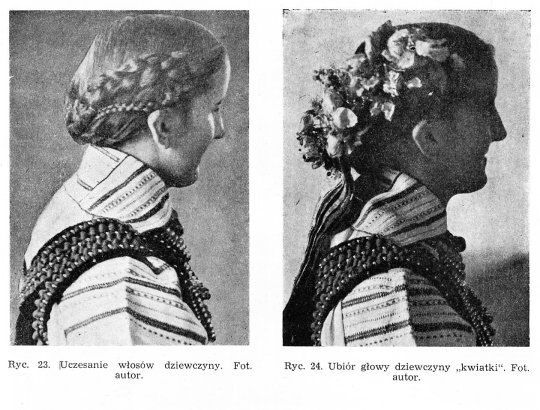
Traditional hairstyle and headdress from the region of Krzczonow, Poland.
89 notes
·
View notes
Text

turoń
7 notes
·
View notes
Text
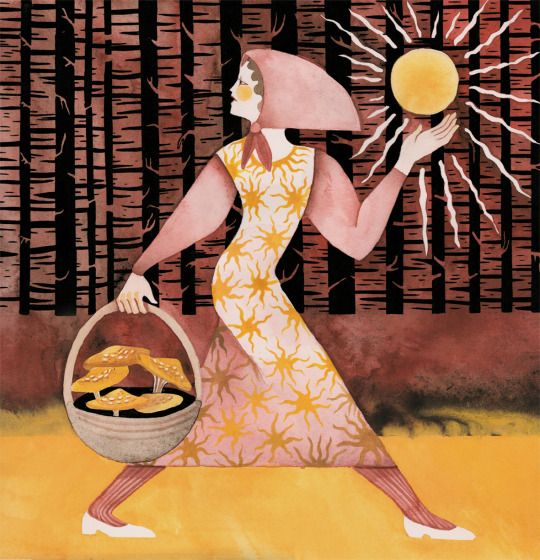
#witch#slavic folk#baba yaga#spooky#watercolor daily#watercolor#watercolor art#magic#mystic#femine#forest#aleksandra czudżak#illustration#witchcraft#mushrooms#czudżak#artwork#slavic#polish folklore#contemporary illustration
480 notes
·
View notes
Text
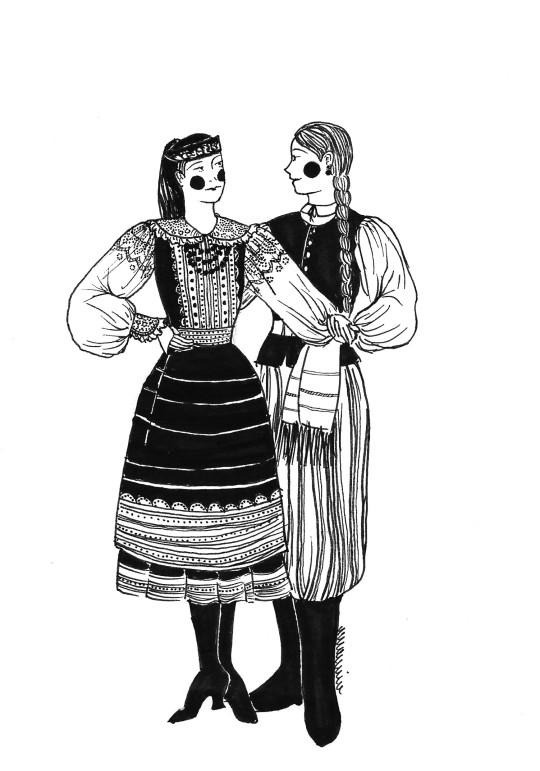
The Kurpianki from Kurpie Zielone have their Kurpie Białe counterparts
(in honour of the town I work in)
#my art#historical wlw#lgbt art#queer#sapphic#polish folklore#wlw post#polish folk#folk dress#folk costume#folk#slavic folk#slavic#slavic culture#poland#polska#kurpie#kurpie białe#kurpie białe folk costume#kurpie białe folk dress#queer artist#wlw love#sapphic art#lgbtq
79 notes
·
View notes
Text










Fern Flower
According to the ancient legends of the Slavs, underground treasures will be opened to the one who finds the fern flower, and he will know the language of the bird and the beast, and he will have great power... But this path is terrible and the price is terrible... A sinless soul must be sacrificed...
Model - Kylie Lane.
Natalie Ina Photography.
June 2024.
Instagram
Facebook
Boosty
Behance
VK
#natalie ina photography#darkness#portrait#sorrow#photographers on tumblr#dark photography#fern flower#slavic folklore#slavic mythology#slavic#slavic witch#Slavic myth#slavic magic#mavka#rusalka#russian mythology#Slavic folk#slavic fantasy#dark fairytale#dark fantasy#witchy#forest witch#witchy forest#art photography#dark atmospheric#dark forest#dark aesthetic#witchcraft#witchblr#Slavic legend
51 notes
·
View notes
Text
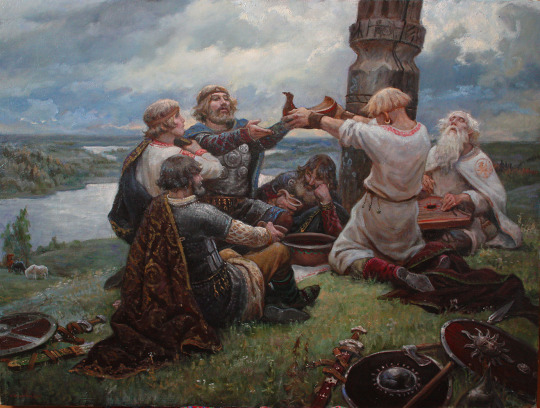
Trizna, 2019 - oil on canvas.
— Andrey Alekseyevich Shishkin (Russia, 1960).
Trizna was a funeral feast of ancient Slavic religion, which was conducted for distinguished members of society before their cremation. Besides the feast and the wake, the deceased will have their body washed and dressed in the finest clothes before their cremation, and merry-making and contests were also held. According to tradition, this was done to symbolise the victory of life over death by repelling evil spirits with laughter.
#slavic culture#slavic folklore#slavic#slavic folk#slavic mythology#folk#folklore#slavs#art#artwork#oil painting#painting#artists on tumblr#oil on canvas#slavic art#russian art#culture#mythology and folklore#ancient history#anicent rus#andrey shishkin
37 notes
·
View notes